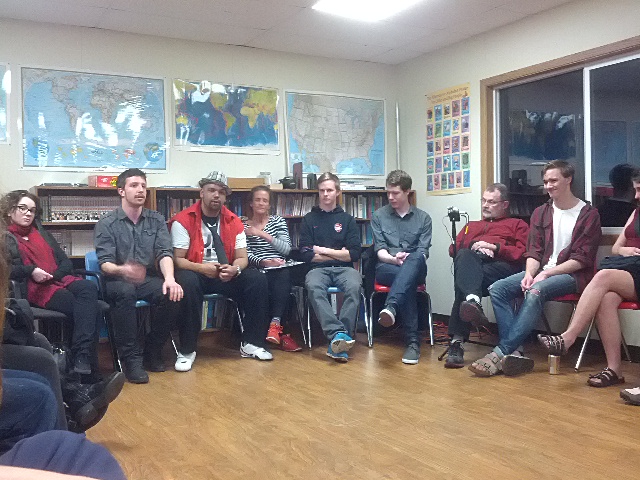I spent the evening yesterday at a truly enjoyable event: The Clearwater School’s first ever Alumni Night. A panel of 5 Clearwater grads, plus 4 others in attendance who were more or less co-opted into participating or weirdly excluded, depending on your perspective, discussed how their lives had been since graduating 1-8 years ago.
Now, I’ve been to a fair number of alumni events for my own high school. I’ve never seen another grad from my year, which is not uncommon at Clearwater since the largest class was, I think, 4 at once. My class had 12, and about half of those still live in town, but the only time I’ve been in one place with more than 3 at a time was when JJ came to town to play in Freeway Park, and Kris, Sean, and Andrea all showed up.
So 9 at once, and two from the same class, made quite an impressive panel. Not because of the status they’d achieved in the Real World, but because they are all so damn thoughtful about their Clearwater experience and the influence it had on who they became.
Emma only spent a year and a half at Clearwater, the first several months essentially silent in a corner, until she connected with a passel of 8 year girls and started doing art and makeup with them. She credits getting to a place where she was free to choose how to spend her time with her ability to choose her next direction: studying French and moving, via a stay in England with family, to Paris.
To take a step back: The Clearwater School is a place where kids are free to choose how to spend their time. The watchwords of the school are Freedom, Trust, Responsibility. I often explain the relationship of these thus: Kids are free to follow their own interests and passions, doing whatever interests them and not doing that which doesn’t. (Then how do they learn to read and do math and all the other important stuff I learned because I had people telling me it was important? That’s one of the questions they answer all the time, and the short version is: They learn what they decide they need when they need it, and then they figure out how to pick it up. “It” including statistics and algebra, human management and graphic design, and French.)
Along with Freedom is the Trust that they are doing the right thing at the right time, so no adult ever comes to them with a teaching moment or a checklist of acceptable (or wonderful, or stimulating, or appropriate) activities to choose from. They just show up every day at school and figure it out.
They also figure out how to deal with boredom. This may be the greatest lesson I see of the place.
Finally, they have tremendous Responsibility to the school community. The school is run democratically, on the one person, one vote principle. The staff — the adults who elsewhere would be called “teachers” — have no more legislative power than anyone else (though they are more influential as a bloc than the kids, partly because they are de facto leaders and role models, and partly because most kids are less interested in going to the meetings where decisions are made. Kind of like in a democracy where majority rule represents only the part of the minority who actually vote.) They have the responsibility to follow the school rules (which they create), one of the highest of which is Do No Harm to the School, second only perhaps to the Stop Rule, which says that if someone asks you to stop what you’re doing to them, you stop.
This is just the thumbnail, the piece I talk about at parties. I will go on, easily, to talk about what I see in my kids, Clearwater lifers, and others, for hours. But only if you ask. Plus, I want to talk more about the alumni.
Robert spent a long time at Clearwater screwing around and screwing up, though he was cagey last night about the precise nature of the screw-ups. At Clearwater, he discovered a love for cooking and travel, and now he works as the sous-chef at a popular Seattle restaurant, promoted after 6 months from prep cook. He spent his last year at Clearwater as chair of School Meeting, the decision-making body at the school, comprised of all students and staff; School Meeting votes, among other things, on the retaining of staff and the granting of diplomas. (Those votes are among the few that are mandatory.)
Sean has worked at Costco for the past 6 years, temporarily in management, though he hated it so he asked for a demotion. Sean shot and edited a brilliant parody of Clearwater school life called “School’s Out,” in which he mocks the very Freedom, Trust and Responsibility that allowed him to make the video at school, in the kind of self-criticizing First Amendment move that makes me hot for democracy. His biggest complaint about the Real World is that he can’t find people interested in debating with him, a skill he honed in endless conversation at Clearwater.
Lucas is currently at The Evergreen State College, where his brother Corey also went (and which I think of as a natural feeder school for Clearwater, whose graduates might and often do enjoy sending their kids to Clearwater). He started his Clearwater career as a resolute rule-breaker for about 5 years, then moved into leadership in School Meeting and on the Judicial Committee, the body that handles rule-breaking. He became a keen observer of nature, a skill he’s currently putting to use as he pursues biology. He finds, as a number of Clearwater students who’ve gone on the college have, that his approach to doing assignments is to figure out what needs to be learned from them, rather than how to get good grades, which tends, as you may anticipate, to getting good grades. He finds that deadlines hinder learning, and has figured out to ask for the more time he needs to get work done because he wants to really understand it, not because he didn’t get started until the last minute. (Which is how I treated extensions, both as a student and in my former teaching life, not a lot of trust going either way.)
Charlie spent his Clearwater days modifying Nerf guns and inspiring others to do so; there were great and involved Nerf wars when he was there. He discovered he could apply his interest to fixing and building computers, and after he graduated Magna Cum Laude from college, went to work doing computer stuff he described but I don’t quite understand.
And those are just the official panel members.
I truly believe these folks are changing the world, as they explode assumptions about education in their own lives and work. As my favorite philosopher, Blaise Pascal, wrote, “I have made this longer than usual because I have not had time to make it shorter.” I forgot to turn my timer on after setting it, so I’ll be back again later to give you Part 2 of How to Become a Big World-Changer Person.

